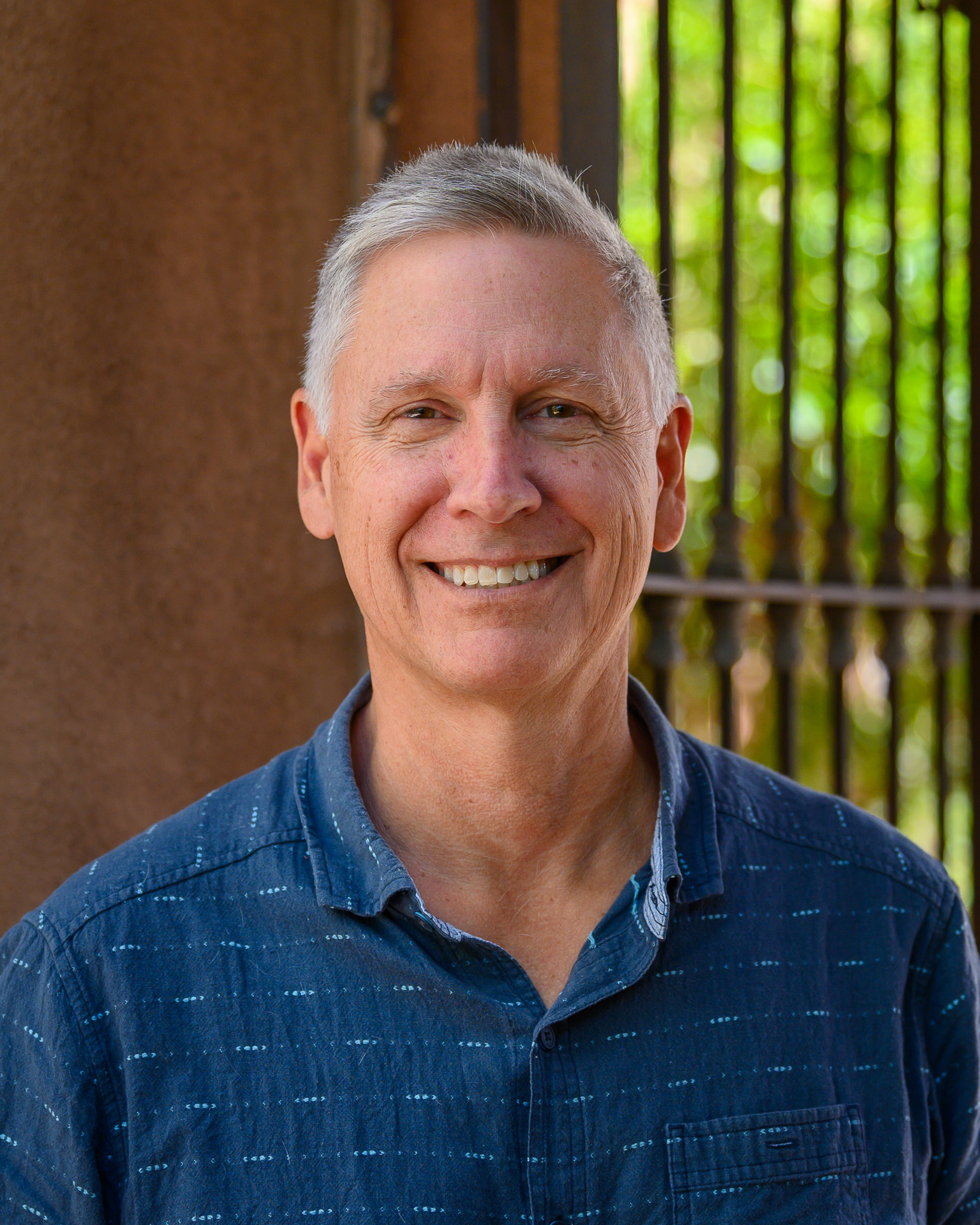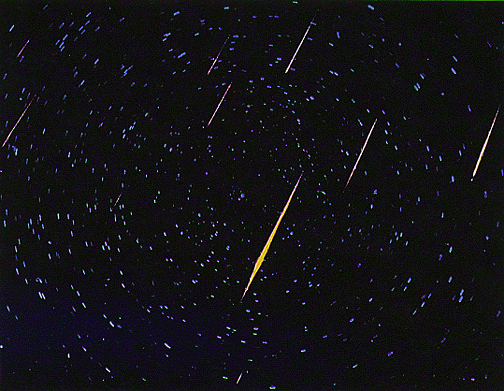1966 Leonids. NASA, Public domain, via Wikimedia Commons.
Philip Deloria, 2023–2024 Katrin H. Lamon Fellow, is writing a new book that looks at American epistemology through shared experiences of the extraordinary Leonid meteor storm of November 1833—which may have generated as many as thirty meteors per second. “This is a perfect moment in America to imagine a continental history of shared experience among many peoples.”
Phil’s SAR project comes out of the American Studies tradition of interdisciplinarity and his long-term interest in Plains Indian winter counts, pictographic chronicles that Native people used to construct relational histories. “When you think about winter counts, you always go to the year 1833 and the Leonid meteor showers because it’s a miniature version of this larger continental history.”

Philip Deloria at SAR in 2023.
Looking across time brings better understanding to American multicultural dynamics. “The 1830s are a dark time of hardship and trauma and division. We think of the Civil War as the moment where America breaks apart. Well, it all starts before that. The 1830s are a real point of fracture.”
“People can be seen breaking into their separate groups and jostling with one another about just what this meteor storm might mean. How do we understand it? Through science? Through faith? In that sense, writing out of the present, the moment of the politics of now, the economics of now, the darkness of now… all of that is to be found in the 1830s as well, and it’s crystalized by the falling stars.”
Adolf Vollmy, after Karl Jauslin from Bible Readings for the Home Circle (Battle Creek, MI: Review and Herald Publishing, 1889). Public domain.
The Year the Stars Fell investigates distinct perspectives: astronomers like Denison Olmsted, Native Americans, and enslaved African Americans. It sets up a context, “for the people of religiosity or faith, who I try to take seriously and respectfully, and the people of science, of course. Because then what I want to do with Native people, is to recognize the ways that they understood that faith and science are Western categories, and are actually not very helpful. The ways we think about knowledge and make knowledge partake of both, So, there’s a throughline argument that comes out of those three chapters; Native people are the folks who get to make the argument.”
“History is able to step across into other disciplinary sorts of forms, always maintaining, I think, the canons of historical method, but drawing on other disciplinary forms. That’s the secret sauce, and where the joy can be found.” Philip Deloria is currently the Leverett Saltonstall Professor of History at Harvard University.
SAR Press Managing Editor Miriam Kolar interviewed Phil Deloria at SAR in April 2024.

